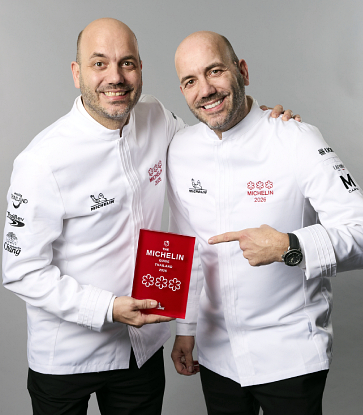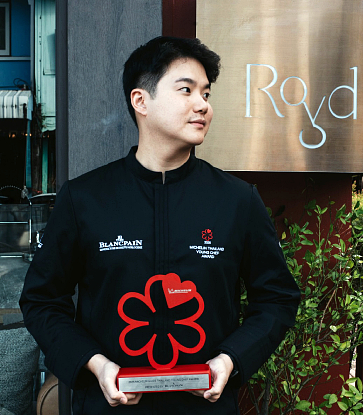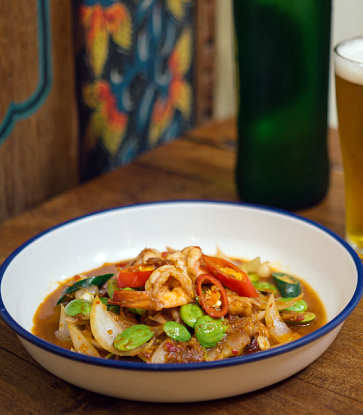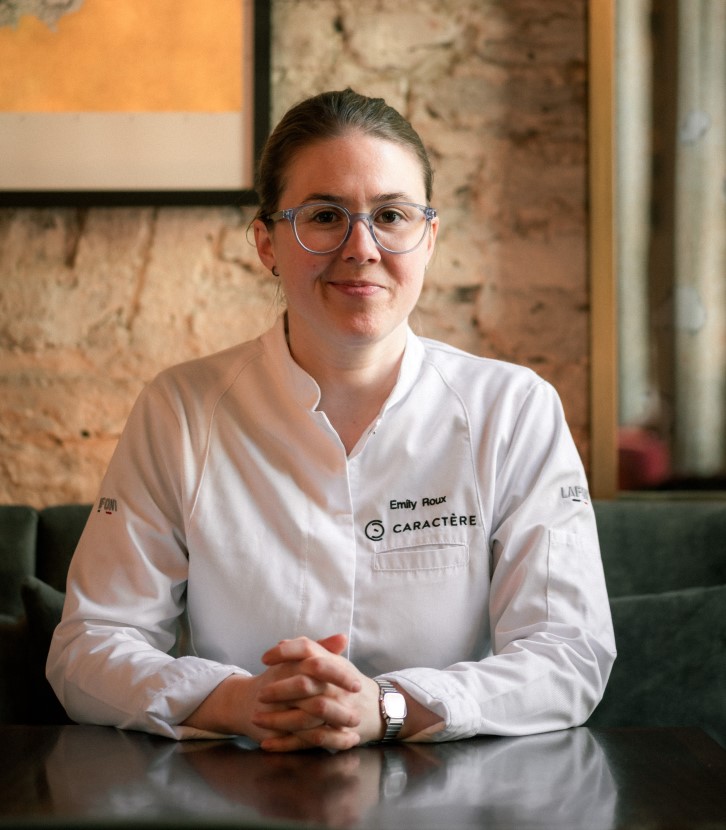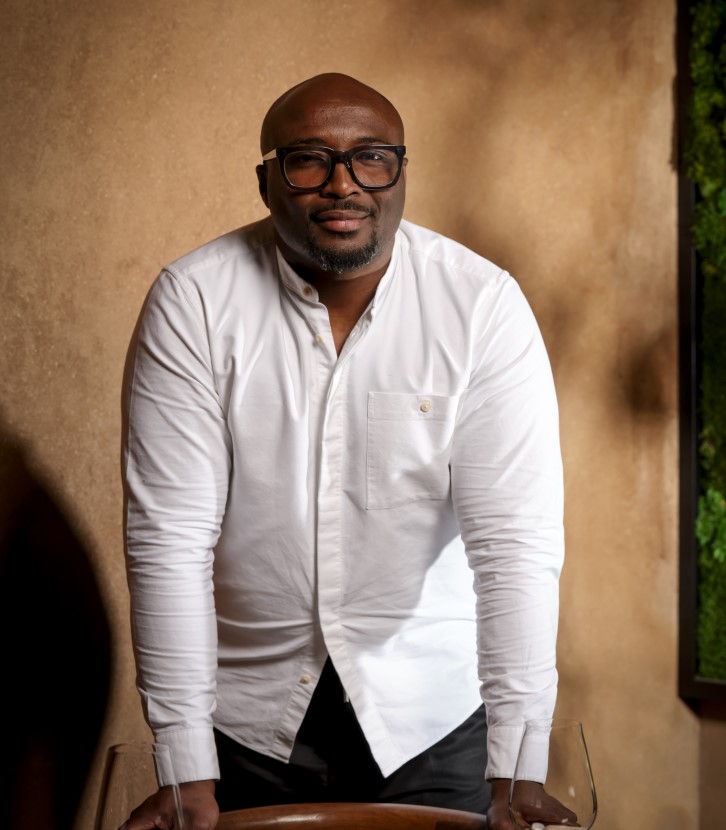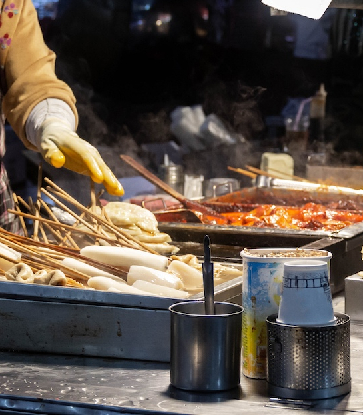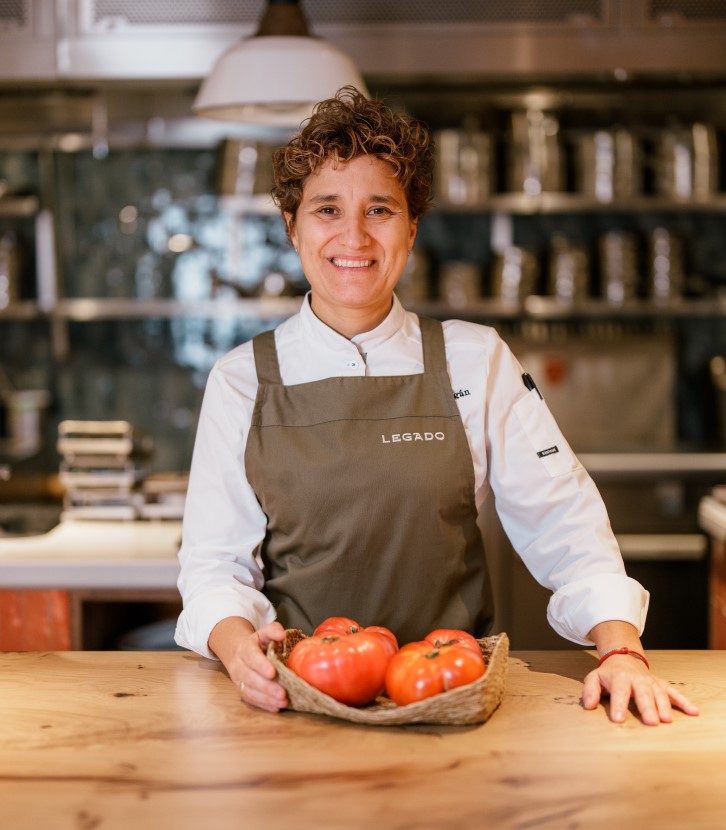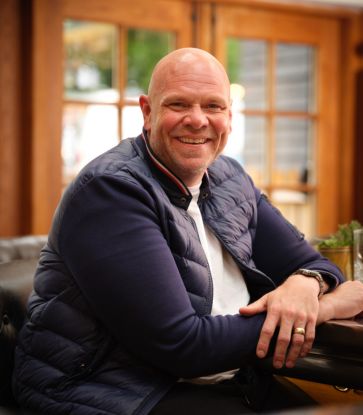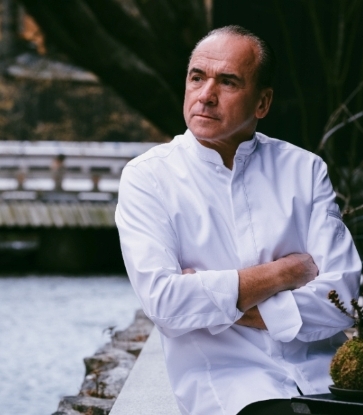For 38 years, the Waterside Inn in Berkshire, England, has achieved three MICHELIN Stars, the only French restaurant outside of France ever to maintain this long-running recognition.
This is thanks to Chef Alain Roux, carrying on the legendary French culinary traditions established by his father Michel Roux and his uncle Albert Roux. In the 80s, they led the Waterside Inn to be the first French restaurant in England to receive three MICHELIN Stars.
Chef Alain Roux took over the award-winning traditional French restaurant, continuing the excellence and attracting countless celebrities and royalty to the Waterside Inn since 2002. Now he is fulfilling his father’s dream of collaborating with two MICHELIN Starred Le Normandie in Bangkok, culminating a long-standing relationship which began as guest chef appearances in 1985.

“There is so much history at Le Normandie with its roots in French fine dining. There are many connections between the two restaurants, but they are also quite different at the same time. This is not Waterside Number Two. It’s different here as we adapt and promote local ingredients,” explains Chef Roux with a smile and determined look.
He invited us in before opening the doors to the much-anticipated Le Normandie by Alain Roux and shared his thoughts and insights on this exceptional undertaking as a second-generation chef from such a lauded culinary family.
Aren’t you familiar with Thailand from your trips here with your father?
“Yes, I did a few trips to Asia with my dad. We went to Thailand on breaks and holidays, but really my father never had a holiday. He was always busy. A few days for holidays, a few days for work. We also went to Chiva-Som and had a few meals.”
Many factors kept you away for a long time. How does it feel to be back?
“I was a little worried, especially with the PCR tests and the like. But I was travelling for a reason. At Waterside, we used specific ingredients, but they might not be as easy to get here because of the different seasons. I have to work differently here, and it’s good work to find new solutions.”
What was your first impression of Le Normandie?
“I came here for two or three nights a few years ago for leisure. The first time I came here in 2020, it was fabulous. It’s authentic, and it keeps giving me excellent experiences. You know where you are, even while wearing a mask in Thailand. You still see the best smile of the Thai people. That’s one of the most important things. Back home, when we have to wear masks in restaurants, we make sure to keep everyone smiling. We have to see you smile even with a mask on. It may be hard work, but for Thai people it’s easy.”
“Nothing is very complex in our cooking, in our family. It’s about simplicity, but the little details can make all the difference.”

Can you tell us about your next steps here?
“The next chapter is to basically start the restaurant and try to see how we can move on with the new seasons. And to be able to change. Not massive changes, but I want to try to learn and discover and work with Thai ingredients. There are a lot of beautiful things that are unique from the country, and the country is quite big. Just like in France where every region has their specialties and ingredients. I want to discover those things here and use them in my menu.
“And having confidence in how things are working. It’s good practice and work for my team for me, because I’m sure they are working twice as much which is good. I know that they can work without me. And it’s important for them to feel confident.”
As a son of the famous Roux culinary family, cooking must be in your blood. When did you decide you wanted to be a chef?
“We all had the choice to choose what we wanted. My father never ever pushed me or my sister to be a chef. He never closed the door, but he made sure we knew what he expected. But in the end, it’s a personal choice. He helped where he could, opening a few doors.
“One time, I was a bit upset when I worked for eight years in France at different places. And when I went back to Waterside, one of my ex-bosses told me that my father called him when I was about to start working in a few days. He told him to make sure that my salary was less than anybody else. I had so little money, but I had to pay my rent, which was quite expensive. I almost got in trouble once, and I had to call him for money. I was so upset and not very proud of myself for asking my father for money. And when I knew he was behind me getting less money, I was upset. He was so tricky. It is a good memory, nonetheless.”

Growing up in a family of chefs, you saw your father and your uncle receive the Order of the British Empire and create a French restaurant with a long history of MICHELIN Stars. What do MICHELIN Stars and MICHELIN Guide mean to you?
“It’s a great award. It has always been well-recognised by the dining public for many years, and I think it’s the oldest and most reliable guide in the world. I think it’s done in the correct way, every judgement. And it’s changed with time. I think it changed the way we live and the customers as well. The expectations, the demands, and I think that’s normal. You have to live; you have to evolve. The guide is important, but I try not to think much about it or it would be a nightmare. Because if you think about it, it’s 38 years and the longest three MICHELIN Star.
“It’s been nerve wracking, but I’m very happy. MICHELIN is part of the motivation for everything. I think it’s a great award for the team. Customers also follow the stars, and I like to see the reward as a restaurateur. So I’m very proud, but I try not to be over-excited about it. I know that the stars will not be there forever. It could happen as it happened to great people like Paul Bocuse. But you know, it's okay. It’s the judgement. The inspectors change every year, so you have to risk losing a star every year.
“But it’s a great challenge, and I like challenges. It is like many things in life, when you get something or when you try to reach a certain level. It’s keeping that consistency, and I think that’s the hardest part. A lot of people can do great things, and they are doing fine work. It’s great when you do it for a few weeks, a few months, but then there’s the long run. And remember, customers also change.”

How much did you have to adjust your dishes to match the tastes of the diners at Le Normandie?
“Yes, the ingredients are very different. For example, the ginger here is four times more powerful. Stronger, more flavour. It’s brilliant, but you have to adjust a bit.
“I like to cook to please my guests, and the guests here are pretty much Thais or perhaps Asians. And the expectations and the tastes are different. I like to change things for my guests. I don’t cook the food I like and force people to eat it. I want the customer to be happy. For seasonings, I will use less than back home. That’s because I think the palate of my guests at Waterside is used to a bit more salt, maybe not the pepper, just salt. Maybe in the last five to ten years I reduced the salt again, because people expected and were getting used to less salt in their food. But here is even less, I find.
“I try to make sure that the dishes contribute to the guests’ palates. If they don’t like it, I will try to change. I don’t mind, because I can’t serve food that the majority of people don’t like. You can’t make 100% of people happy, but I can try to improve and do better. Then there’s the texture as well. The texture of the meat. The expectation here would be a bit more cooked rather than bloody. The duck, the lamb, the pigeon. Unlike the Europeans.
“So, you see a few things to change or adapt. And you discover and learn it with your tongue. I like spending time getting feedback from our guests. I’m a chef who likes to adapt and change. People are not coming here for punishment. It’s not difficult to change, and it can be more enjoyable for guests. Or last thing, the little details. Nothing is very complex in our cooking, in our family. It’s about simplicity, but the little details can make all the difference.”
“I try to make sure that the dishes contribute to the guests’ palates. If they don’t like it, I will try to change.”

How would you explain your food to someone who isn't familiar with your cooking?
“It’s a French Classic with a personal touch and some twists. It’s prepared and cooked with freshness and lightness. We’re still using butter and cream, which is quite ordinary in French cooking, but not as much. It’s lighter and fresher. And some dishes you might not see, but it has hidden ingredients. Sometimes it’s just herbs or spices, but it’s from different continents. I like secrets."
What’s your favourite dish at Le Normandie by Alain Roux?
“The Golden Plum soufflé. I loved my time working with dad, my longest mentor. We worked as a family for many years, and I don’t want to forget that. So I tried to continue his legacy. This is a signature dish that I’m quite proud of. Through the pressure to prepare and cook it, this is one of a very few dishes that stays in course. Some dishes have faded with time or are less popular. But this dish is 40 years old. When people try this dish for the first time, they think ‘wow, I’ve never tried something like that’. At the end of the day, it was inspired by my first trip to Asia.”
Do you have a favourite Thai dish yet?
“Honestly, not yet. I’m not difficult about food. I love to try, to discover, and to learn new things. I’m not at a great level for spicy food. But I love it. For so many years, Asian food has been my favourite.”

What is your work philosophy?
“I guess it’s not really a philosophy, but I hate things that don’t look the best. I always want to keep up the quality. Our guests come to the restaurant to pay for quality. It’s never changed. I don’t like shortcuts. I’ll take as much time and do the same hard work to do things correctly and to be the best. And never settle for second-best. I love working with my team, I am quite close with my people. I get great support, but I also like to give support to my team and make sure that I am here whenever they need, even if it's not for work.”
What do you aim to achieve on this new path?
“It’s the chance to be able to work together with a big team of Thai people. I know we have guests who come here for my dad. I hope they will come back to Le Normandie like they’ve done before and become regulars again. And for guests who have never been to Waterside, I’ll make sure that they like it as much as home. That might be the great challenge, and I’m very pleased to show them how the Thames River and Chao Phraya River influence our food here.”

Hero image and other images: © Anuwat Senivansa Na Ayudhya / MICHELIN Guide Thailand



